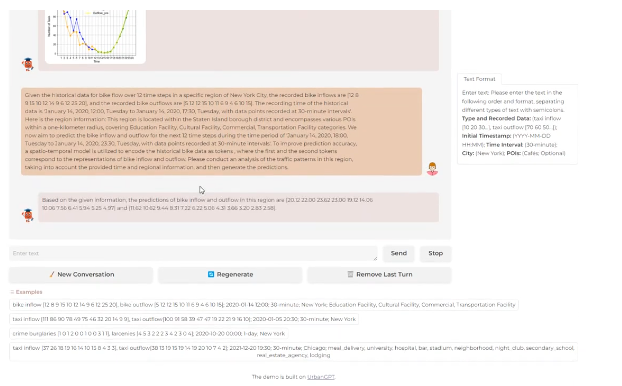fragrantHKUStudy andBaiduJointly launched the first smart cityLarge Model UrbanGPT, which has triggered a major breakthrough in the field of spatiotemporal prediction technology. Spatiotemporal prediction technology is becoming increasingly important, focusing not only on the flow of traffic and people, but also on multiple dimensions such as crime trends. However, due to insufficient urban data, traditional spatiotemporal prediction models are limited in terms of accurate prediction. The emergence of UrbanGPT fills this gap, and its strong generalization ability makes it show great potential in the field of zero-shot learning.

Challenges faced by UrbanGPT include scarce labels and high training costs, as well as the limitations of spatiotemporal prediction models in zero-shot generalization. However, by integrating spatiotemporal dependency encoders and instruction fine-tuning methods, UrbanGPT successfully overcomes these challenges, enhances the understanding of complex relationships in time and space, and achieves accurate predictions in data-scarce situations.
In practical applications, UrbanGPT has demonstrated excellent generalization performance in zero-shot learning scenarios, confirming its effectiveness in accurately predicting and understanding spatiotemporal patterns. In particular, in terms of cross-city knowledge transfer, UrbanGPT has demonstrated the ability to associate functionally similar regions with spatiotemporal patterns of the same historical period by comprehensively considering a variety of geographic information and time elements, providing strong support for achieving accurate zero-shot predictions in cross-city scenarios.
The release of UrbanGPT marks a new milestone in the field of smart cities. Its powerful spatiotemporal prediction capabilities will play an important role in urban planning, traffic management, crime prediction, etc. At the same time, the generalization ability of the model also provides strong support for the development of smart cities.